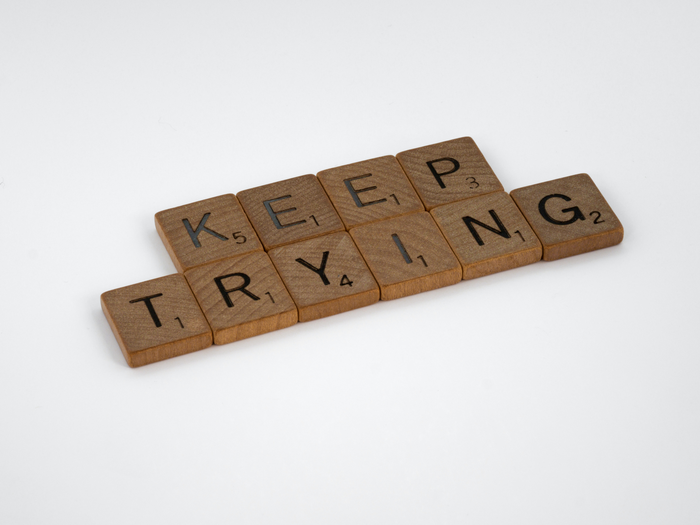A new analysis of the personality trait of grit found that people who showed higher levels of grit also had different patterns of cognitive performance—but not necessarily enhanced cognitive performance. Nuria Aguerre of the University of Granada, Spain, and colleagues present these findings in the open-access journal PLOS ONE on June 22, 2022.

Credit: Brett Jordan, Unsplash, CC0 (https://creativecommons.org/publicdomain/zero/1.0/)
A new analysis of the personality trait of grit found that people who showed higher levels of grit also had different patterns of cognitive performance—but not necessarily enhanced cognitive performance. Nuria Aguerre of the University of Granada, Spain, and colleagues present these findings in the open-access journal PLOS ONE on June 22, 2022.
A person with grit is someone who displays notable perseverance in pursuit of long-term goals, even in the face of setbacks. Researchers typically measure it with an evaluation tool known as the Grit Scale. While previous studies have suggested a potential link between grit and certain aspects of cognitive functioning, no studies have directly examined this relationship.
To gain further insight, Aguerre and colleagues had 134 study participants complete questionnaires, including the Grit Scale, to evaluate their personalities according to three traits: grit, impulsiveness, and mindfulness. The participants also completed four experimental computer-based tasks to measure different facets of cognitive ability, including flexibility, inhibition, the ability to replace irrelevant items in one’s working memory—which holds information temporarily—with newer, relevant items, and the control mode tendency.
Statistical analysis of the questionnaire and experimental data revealed that, contrary to the researchers’ predictions, people with higher grit scores did not necessarily score higher on overall cognitive ability. However, in line with prior research, grit was statistically linked to the personality traits of low impulsivity and high mindfulness, which are both related to self-regulation.
However, albeit to a lesser statistical extent, participants high in grit did show different patterns of cognitive performance. The researchers characterized this cognitive profile as showing cautious control: an enhanced ability to pay attention to all available information and remain sensitive to conflicting information in the present moment, while relying less on earlier information.
Overall, these findings suggest that different patterns of cognitive ability—not necessarily greater ability—may underlie grit. This is in line with other researchers’ previously proposed ideas. The researchers describe this study as exploratory and suggest that future research could delve deeper, such as by including a more comprehensive measure of grit and by also considering a cognitive ability known as fluid intelligence.
The authors add: “To crown the top of the mountain you do not need very good executive functions. You should be aware of the environment instead.”
#####
In your coverage please use this URL to provide access to the freely available article in PLOS ONE: https://journals.plos.org/plosone/article?id=10.1371/journal.pone.0269448
Citation: Aguerre NV, Gómez-Ariza CJ, Bajo MT (2022) The relative role of executive control and personality traits in grit. PLoS ONE 17(6): e0269448. https://doi.org/10.1371/journal.pone.0269448
Author Countries: Spain
Funding: This work was supported by the Spanish Ministry of Economy and Competitiveness and the Andalusian Government (Fondos FEDER) grants: doctoral research Grant ES-2016-078667 to NA; PSI2015-65502-C2-1-P, A.CTS.111.UGR18 and PGC2018-093786-B-I00 to TB; and PSI2015-65502-C2-2-P to CG-A. The funders had no role in study design, data collection and analysis, decision to publish, or preparation of the manuscript.
Journal
PLoS ONE
DOI
10.1371/journal.pone.0269448
Method of Research
Survey
Subject of Research
People
Article Title
The relative role of executive control and personality traits in grit
Article Publication Date
22-Jun-2022
COI Statement
The authors have declared that no competing interests exist.




